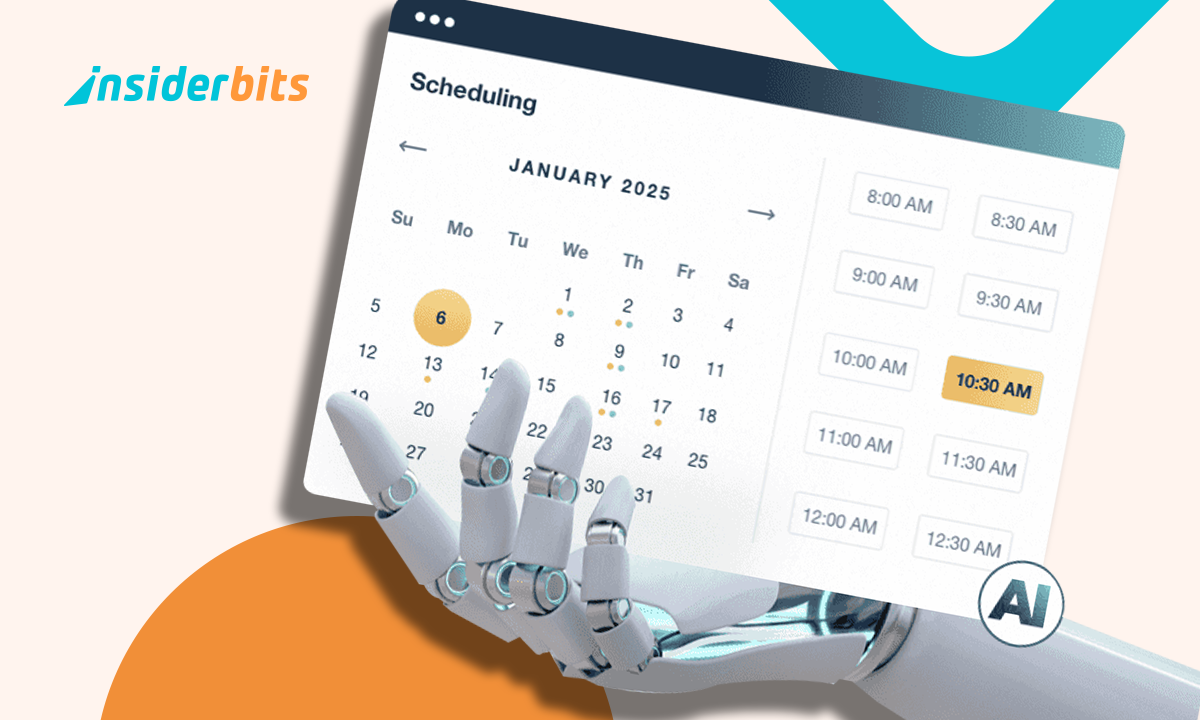AI is quickly and astonishingly revolutionizing game development. The tech is generating dizzying breakthroughs in the gaming industry and reforming it with sophisticated methodologies and learning algorithms.
Implementing AI in this industry generates active, genuine, competitive, and adaptable settings to attract more users daily. This tool seems ready to meet all the expectations of users and developers.
The reality is imminent: AI is producing a significant impact. Enthusiasts are already ready to adapt to this dynamic; skeptics are just waiting for a subtle boost from the new technology. Discover with Insiderbits how AI is changing the interactive venture business.
- AI App – This App Learns Your Interests And Keeps You Updated
- AI Art Critique: AI That Evaluates and Enhances Your Artwork
How AI is transforming game development and creativity
AI transforms game development to give users a more customizable perspective. This tool broadly lets create more innovative and adaptable behaviors than non-player characters (NPCs).
It also improves playability, customizes difficulty, and optimizes code, opening up new opportunities for imaginative designers. This tool is vital in the industry and revolutionizes everyone’s experiences.
It contributes to developers’ work, expanding original possibilities and efficiency in creation. It reduces human errors and customizes the difficulty level according to the user’s progress.
AI makes producing good background stories and generating more authentic dialogue and conversations straightforward. The interaction becomes more immersive when the virtual quests come to life, and the experience gets more satisfying.

The generative potential of AI in game development
Gaming universes developers know AI plays a vital role in the field, especially in player interactions. More adaptable and realistic gaming experiences are now being created. Limited NPC interactions will quickly become a thing of the past.
Moreover, AI can provide ideas, suggestions, and solutions that revolutionize the industry and save creators time. In other words, it can optimize, in a certain way, the process of pixelated world production. So, it:
- Speeds up coding: efficiently performs procedural tasks, data analysis, and strategic resource optimization;
- Generates more intelligent NPCs: manages complex algorithms so NPCs can move efficiently around the playable story environment, react to changes, and make it seem natural;
- Improves realism: it allows you to manage NPC states, behaviors, and actions. It also improves the transition between one action and another and stimulates controller-driven journey conditions, resulting in more complex and natural behaviors.
AI helps developers make the adventure seem brighter and more adaptive to the situation. It creates more lively and responsive worlds and superior gaming experiences.
AI-assisted coding, making game development faster and smarter
The truth is that AI offers many advances in developing and creating immersive experiences. It is responsible for finding programmatic ways to make game modes more realistic, obstacles more credible, and environments more navigable.
It offers an unimaginable amount of artistic resources, and its creative capabilities have become more astonishing. In addition, it can be helpful when identifying errors and difficulties in processing and performance.
- Allows entire worlds to be designed more quickly with individual and repetitive elements;
- It improves narratives and makes stories more authentic. Scenarios and resources are created in real-time;
- It models the player’s experience by analyzing their epic challenges information. The AI analyzes the user’s skills and preferences to offer more personalized options. Thus, it adjusts the difficulty in each level, adapting to the player’s capabilities.
AI tools make development faster, more genuine, and more intelligent. Machine learning is already available to prevent fantasy landscapes from becoming repetitive and stagnant, introducing new missions and challenges.
Challenges and opportunities offered by AI-powered gaming transformation
The advantages of AI game development are pretty extensive. Not only does it provide innovations for the player’s gaming experience, but it also makes the work of developers easier.
In addition, optimizing the economy in the creation process incurs costs. However, there are also some challenges and considerations to take into account. Here are some of them.
Advantages
- It creates a deeper immersion that is more aligned with the user’s personality. The coded escapade is more authentic, more profound, and more genuine, offering advanced scenarios and more fluid conversations;
- It improves the gaming experience. It no longer offers such robotic behavior but rather more customizable prompts;
- It drives unique, different stories with procedural generations that create unrestricted and authentic environments;
- Promotes adoption of real-time strategies. This way, more resources are obtained for attacks, generating actions, and discovering objects;
- It enhances player-driven narratives. Characters are more impressive, and the experiences are more dynamic and entertaining;
- It improves graphics and resolution. It favors developers’ work, facilitating the fluidity of elements so that they can replicate aspects of daily life.
- AI plays a key role in the economy. This type of technology can optimize assets and new high-score battle levels. It will facilitate the purchases necessary to advance in the interactive adventures, resulting in profits for players and developers.
Disadvantages
AI in this industry must mitigate potential and adverse challenges. Whether this type of technology overshadows developers’ creativity remains to be seen.
The key is to maintain the artistic vision of creators with the advantages of artificial intelligence.
- Reduces developer control. Autonomy, control, and independence in NPCs can be lost over time;
- It can alter the balance and dynamics, reducing the predictability of the level-based odysseys;
- It incurs potential technical inconveniences. Implementing complex systems can incur errors and predictable behaviors.
Game developers will need to invest in perfect security protocols to protect the depth of data. Another challenge to consider is that many aspects of console creations are expected to be improved without human influence.
This concerns some in the industry, especially screen-bound exploit artists. It can also generate great uncertainty in the medium, as it is feared that it will replace gaming professionals in some spaces.

The immediate future of gaming: the end of static game worlds?
AI is revolutionizing the game development process, from asset creation to improving player engagement. Predicting user gameplay behavior is the key to success.
Understanding behavior can help uncover essential elements for tech-powered fantasy design. Data can be analyzed, patterns discovered, and lucrative monetization strategies designed.
AI has valuable information that rediscovers the inventiveness of digital playground titles. Adjusting gameplay dynamics, skill levels, and difficulty will create more engaging, challenging, and realistic virtual battlegrounds.
Predicting user behavior is shaping next-generation games. Knowing player preferences will offer more engaging and valued gaming experiences for everyone.
We hope this information gives you a clearer idea about the technological advances the video interactive escapism industry is undergoing. At Insiderbits, you will find detailed information on the latest in the technology and entertainment industry.





